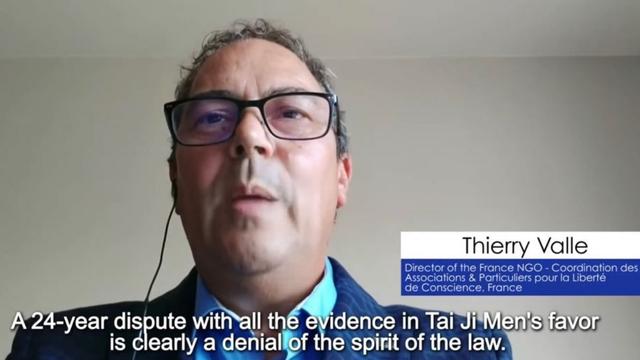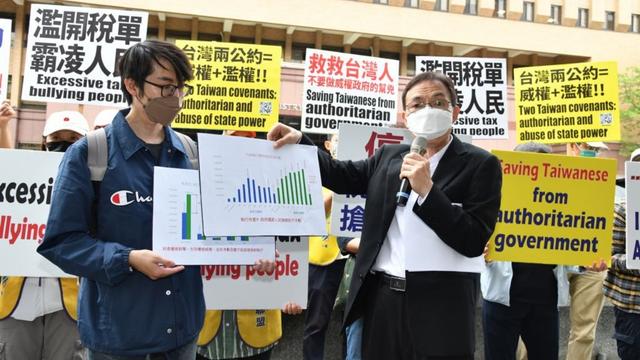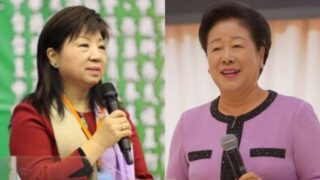The Tai Ji Men case proves that Taiwan has not implemented yet the human rights covenants it introduced into its domestic law, a written statement says.
by Massimo Introvigne


Coordination des Associations et des Particuliers pour la Liberté de Conscience (Coordination of Associations and Individuals for Freedom of Conscience), an ECOSOC-accredited NGO, filed at the 50th session of the United Nations Human Rights Council in Geneva, which opens on July 13, a written statement distributed on June 1, 2022, on “The Two Human Rights Covenants and Freedom of Religion or Belief.” The document has been published on the web site of the United Nations (may not open in all browsers and we also offer the document for download).
Download the written statement.
The statement reminds its readers that, “The International Covenant on Civil and Political Rights (ICCPR) and the International Covenant on Economic, Social and Cultural Rights (ICESCR) became international law in 1976. As we all know, they are the cornerstones of the United Nations human rights system.”
CAP-LC also comments that freedom of religion or belief (FORB) is an essential part of the two covenants—and one of the parts more often violated. In particular, “in several countries, new religious and spiritual movements labeled as ‘cults’ or ‘extremist organizations’ are systematically discriminated.”
CAP-LC notes that in 1993, the United Nations Human Rights Committee adopted General Comment No. 22 to art. 18 of ICCPR, which deals with freedom of religion or belief (FORB). Section 2 of General Comment no. 22 states that, “Article 18 protects theistic, non-theistic and atheistic beliefs, as well as the right not to profess any religion or belief. The terms ‘belief’ and ‘religion’ are to be broadly construed. Article 18 is not limited in its application to traditional religions or to religions and beliefs with institutional characteristics or practices analogous to those of traditional religions. The Committee therefore views with concern any tendency to discriminate against any religion or belief for any reason, including the fact that they are newly established, or represent religious minorities that may be the subject of hostility.”
The statement then addresses the case of Taiwan. For well-known reasons, Taiwan is not a member state of the United Nations, but in 2009 it incorporated the two Covenants into its domestic law. Taiwan is not part of the UN Human Rights Council either, but many countries that have friendly relations with Taiwan are. A discussion at the Human Rights Council may call the attention of these countries on problems existing in Taiwan.
CAP-LC mentions that on May 9–13, 2022, the 3rd International Review Conference on the National Reports of the Two Covenants was held in Taipei. “A Review Committee consisted of nine independent experts, The Committee divided itself into two groups, one dealing with the ICCPR, chaired by Manfred Nowak, an Austrian human rights lawyer, who served as the United Nations Special Rapporteur on Torture from 2004 to 2010, and one with the ICESCR, chaired by Eibe Riedel, a retired German academic who was a member of the United Nations Committee on Economic, Social and Cultural Rights from 2003 to 2012. Both had participated in the process of reviewing compliance with the Two Covenants since 2013.” On 13 May 2022, “the Review Committee adopted a third set of Concluding Observations and Recommendations (COR 3).”
CAP-LC comments that “while the COR 3 are useful in showing that work remains to be done to fully implement the two Covenants in Taiwan,” “the absence of any reference to freedom of religion or belief is surprising.”
“Several civil society participants to the Review Conference, CAP-LC goes on to say, had mentioned the Tai Ji Men case, a blatant and unresolved case of human rights violations on which a significant scholarly literature exists.”
CAP-LC explains that “Tai Ji Men is a menpai (similar to a school) teaching qigong, martial arts, and self-cultivation.” It then summarizes the Tai Ji Men Case: the movement’s “master, his wife, and two members were detained in 1996, accused of fraud, tax evasion, and even, absurdly, of ‘raising goblins.’ In 2007, the court of third instance recognized them as not guilty of any crime, including tax evasion, and they received national compensation for the unjust detention. However, based on legal theories that were declared unfounded in 2007 the National Taxation Bureau continued to issue tax bills and finally maintained the one for the year 1992. Based on this bill, in 2020 the National Enforcement Agency auctioned off unsuccessfully and confiscated land intended for a Tai Ji Men self-cultivation center. This generated mass protests.”
Why does the issue deserve to be raised in international fora? CAP-LC answers that, “The Tai Ji Men case is a very typical example of how, even in cases when a commitment to the Two Covenants is affirmed, in practice they are not respected.”


In conclusion, “CAP Liberté de Conscience calls for a renewed commitment towards the Two Covenants, and one that would not ignore the importance of freedom of religion or belief, an essential freedom and a test for respect of human rights everywhere. It also calls for the urgent solution of pending cases where the non-respect of the Two Covenants led to injustice and unnecessary suffering.”
The statement filed at the 49th session of the Human Rights Council signals the increasing internationalization of the Tai Ji Men case. It is not the first filed with the Human Rights Council. On November 9, 2010, the Association of World Citizens, another ECOSOC-accredited NGO, submitted a 1503 procedure to the Human Rights Council about the Tai Ji Men case. A 1503 procedure is a complaint denouncing a case of violation of human rights and inviting the Human Rights Council to investigate.
At the 47th session of the Human Rights Council, CAP-LC filed a written statement that was distributed on June 21, 2021, on how governments misuse taxes to discriminate against certain religious and spiritual organizations, a human rights abuse of which the Tai Ji Men case was offered as an egregious example.
At the 48th session of the Human Rights Council, the same CAP-LC filed another written statement, distributed on August 31, 2021, which focused on the seizure of real estate as a weapon to discriminate against religious and spiritual minorities. The case of the sacred land of Tai Ji Men seized, auctioned off, and confiscated in 2020 on the basis of the ill-founded tax bill for 1992 was the main example of this dangerous strategy presented in the statement.
A statement on corruption filed at the 49th session in February 2022 was the fourth document calling the attention of the Human Rights Council on the Tai Ji Men case. Now, the case is discussed at the Human Rights Council for the fifth time.









